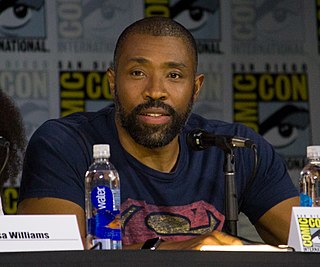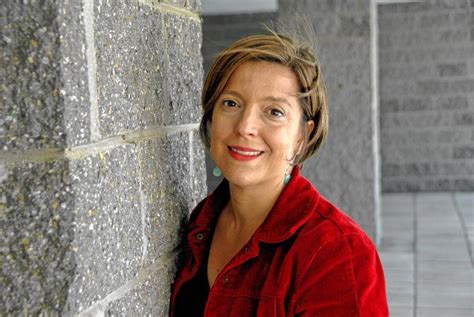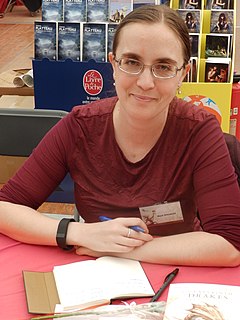A Quote by Sabaa Tahir
The way I felt growing up, which was like an outcast - I was weird, I was a nerd, I read fantasy books - I think a lot of fantasy book readers and a lot of readers and writers in general have that experience of isolation.
Related Quotes
Growing up, I didn't really read a lot of comics; we didn't really have the money to get them. But I grew up a universal fan of fantasy and sci-fi and watching a lot of TV. There's always this question of 'Are you a fan of sci-fi or fantasy?' But can't you be a fan of both? We love everything fantasy, my wife and I.
I do open endings on purpose. I expect a lot from my readers. I want them to do much of the work, because I believe that the story is built by the reader, not by the writer. I like having an open ending to a standalone fantasy, because it allows a continuing story to be written in the hearts of the readers.
I really wish that peoplewould just say, 'Yes, it's a comic. Yes, this is fantasy. Yes, this is Science Fiction,' and defend the genre instead of saying, 'Horror is a bit passe so this is Dark Fantasy,' and that' s playing someone else's game. So that's why I say I'm a fantasy writer and to hell with 'It doesn't read like what I think of as a fantasy'. In that case what you think of as a fantasy is not a fantasy. Or there is more to it than you think.
I want my books to exist in the literary world, not only in the art world. I am interested in having a dialogue with other writers, and the readers of those writers. Someone who is reading a book of mine might not have visited my exhibitions related to it, but can still have a full, literary experience with that book. This would be a completely different experience from stepping into the show, not having read the book. One form is not illustrative of the other.




































